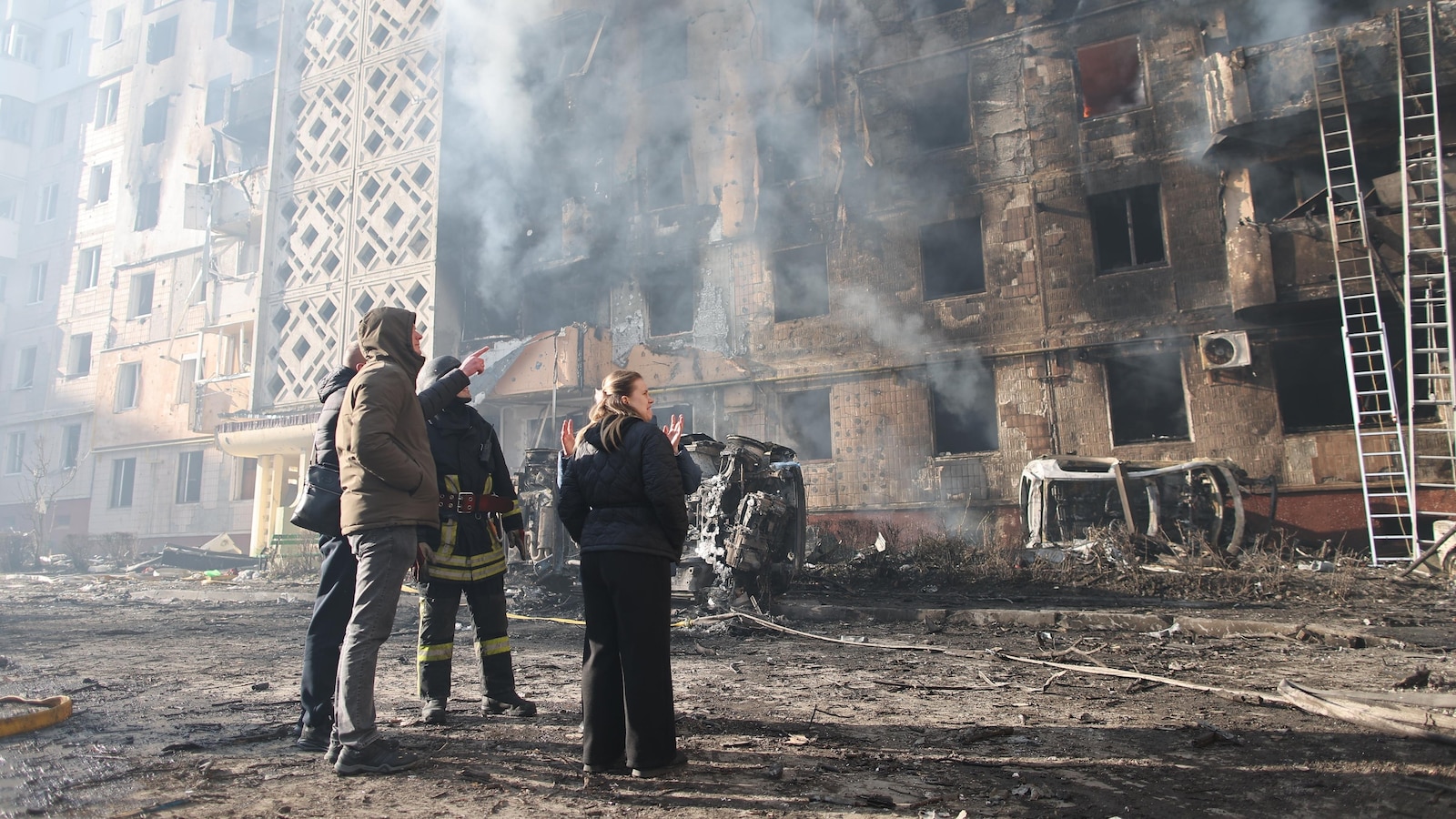An F-35A Lightning II sits on the runway at the Florennes Airbase in Florennes, Belgium, Oct. 13, 2025.
…
Category: 2. World
-

What to know about the F-35 fighter jet that Trump is selling to Saudi Arabia : NPR
-
Japanese seafood caught up in escalating diplomatic dispute with China – Reuters
- Japanese seafood caught up in escalating diplomatic dispute with China Reuters
- China to suspend imports of Japanese seafood amid diplomatic row: Reports Al Jazeera
- What to know about China and Japan’s escalating spat over Taiwan BBC
- Chinese…
Continue Reading
-

Russian barrage kills 19 in Ukraine city as Zelenskyy heads for talks with Turkish leader
KYIV, Ukraine — A large Russian drone and missile barrage pummeled a western Ukrainian city, killing 19 people, emergency services said Wednesday, as Ukrainian President Volodymyr Zelenskyy arrived in Turkey for top-level talks to try to muster…
Continue Reading
-
Pakistan, Russia express satisfaction at current trajectory of bilateral ties – RADIO PAKISTAN
- Pakistan, Russia express satisfaction at current trajectory of bilateral ties RADIO PAKISTAN
- FM Dar meets Russia’s Putin, China’s Li Qiang on sidelines of SCO Moscow summit Dawn
- SCO summit: Pakistan pushes for enhanced regional connectivity,…
Continue Reading
-
Meeting between Deputy Prime Minister/Foreign Minister Senator Mohammad Ishaq Dar with Russian Foreign Minister Sergey Lavrov on the Sidelines of the SCO-Council of Heads of Government Meeting
The Deputy Prime Minister/Foreign Minister, Senator Mohammad Ishaq Dar, met with Foreign Minister of the Russian Federation Mr. Sergey Lavrov on the sidelines of the SCO-Council of Heads of Government meeting in…
Continue Reading
-

Morning Mail: Trump defends Saudi prince over Khashoggi killing, the tragic death of Gail Karran, new Roblox restrictions | Australia news
Morning everyone. As the long-awaited debate on releasing the Jeffrey Epstein files began in the US Congress, Donald Trump hosted Saudi Arabia’s crown prince Mohammed bin Salman in the Oval Office and defended his guest when questioned over the…
Continue Reading
-
Dar, Li Qiang review Pak-China bilateral cooperation – RADIO PAKISTAN
- Dar, Li Qiang review Pak-China bilateral cooperation RADIO PAKISTAN
- FM Dar meets Russia’s Putin, China’s Li Qiang on sidelines of SCO Moscow summit Dawn
- DPM Dar leads Pakistan delegation at SCO summit in Moscow The Express Tribune
- Dar pushes…
Continue Reading
-
Gaza resolution – Dawn
- Gaza resolution Dawn
- Updates: Hamas says UN resolution on Gaza does not meet demands Al Jazeera
- Trump’s plan for Gaza backed by UN Security Council BBC
- The UN Embraces Colonialism: Unpacking the Security Council’s mandate for the U.S. colonial…
Continue Reading
-
Crime and punishment – Dawn
- Crime and punishment Dawn
- BBC in Dhaka: ‘The trial may be over… anger very much remains’ BBC
- Why India likely won’t return Hasina to face Bangladesh death penalty Al Jazeera
- Bangladesh: Justice for victims of 2024 massacre not served by death…
Continue Reading
-
Trump Says Saudi Leader Knew Nothing of Journalist Murder, Rejecting CIA Assessment – The Wall Street Journal
- Trump Says Saudi Leader Knew Nothing of Journalist Murder, Rejecting CIA Assessment The Wall Street Journal
- Saudi crown prince expresses support for Abraham Accords, seeks ‘clear path’ for Palestinian statehood Dawn
- ‘Things happen’ – Trump…
Continue Reading